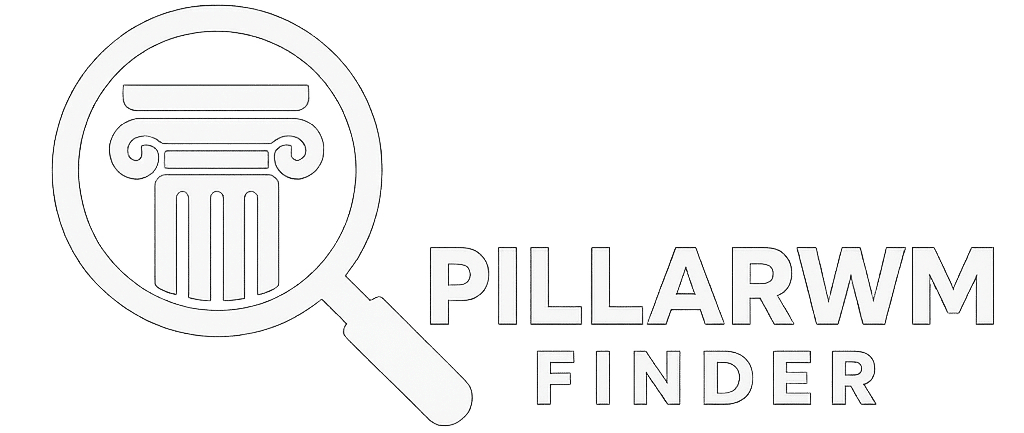Searching for a “financial planner near me” means you have made a proactive decision to strengthen your financial situation. Whether you’re seeking help to fine-tune your investment portfolio, solidify your savings, or create a comprehensive financial plan, a local financial planner is the professional to turn to. This article provides insight into how to find a financial planner. Take this journey in search of the most fitting personal financial advisor to partner with you in your quest for financial stability and growth.
Table of Contents
- Find a Financial Advisor Near You
- Why Work with a Financial Advisor Near You?
- Tips for Finding Financial Advisors Near You
- Explore Organizations for Professional Financial Advisors
- Finding a Remote Financial Advisor
- Local Financial Advisor Selection: Key Points to Note
Find a Financial Advisor Near You

Finding a financial advisor who aligns with your goals and financial needs often starts with location and expertise. Whether you’re looking for someone local or open to working with a virtual advisor, online directories and search tools can help. A simple search for “financial advisor near me” will typically yield a range of options in your area. From there, it’s wise to shortlist a few advisors or firms for an initial consultation.
Matching with the right advisor depends on understanding your own financial objectives and evaluating whether an advisor’s services, approach, and experience align with them. It’s also important to review their fee structure and how they are compensated, whether through fees only or a combination of fees and commissions.
If conducting this search independently feels time-consuming, online advisor-matching platforms may offer a convenient alternative. These services are designed to connect users with advisors based on specific needs and preferences. Another option is to explore robo-advisors, which offer algorithm-driven financial planning with minimal human interaction, often at a lower cost.
Each option has pros and considerations depending on your situation, risk profile, and preferred level of personalization.
Why Work with a Financial Advisor Near You?

While digital tools and remote services have become more common, many individuals still value the benefits of meeting with a financial advisor in person. Working with a local advisor allows for direct, face-to-face conversations, which can foster stronger communication and help you better understand their approach and style.
Choosing a financial advisor near you may also support your local economy, similar to shopping from neighborhood businesses or community markets. Engaging with local professionals contributes to the financial ecosystem within your region and keeps services grounded in the specific needs of your area.
Another advantage is access to a network of nearby professionals. A financial advisor who operates locally may have established relationships with estate planning attorneys, CPAs, insurance specialists, and other financial professionals. This network can be beneficial when assembling a well-rounded financial strategy that addresses your full range of planning needs.
By working with someone familiar with the local financial landscape—and who can collaborate with other experts in your area—you’re more likely to receive a coordinated approach that aligns with your long-term objectives.
Tips for Finding Financial Advisors Near You

Utilize an Online Financial Advisor Matching Platform
Finding the right financial advisor may take time, but online platforms can help simplify the process. These services allow users to connect with financial advisors in their area, or virtually, based on personal needs and financial goals. Most platforms prompt you to complete a questionnaire to better understand your financial objectives, which helps match you with advisors suited to your preferences and budget.
While these tools do not guarantee a specific outcome, they provide a convenient way to explore options and begin the advisor search.
Here are four financial advisor matching platforms with broad networks of financial professionals, including Certified Financial Planners (CFPs), CPAs, and other credentialed advisors across the United States:
Zoe Financial
Zoe connects users with financial professionals who may hold designations such as CFP, CPA, or CFA. Some advisors offer additional services such as tax planning. Advisory fees in the Zoe network typically range from 0.50% to 1.50% of assets under management. An initial consultation is usually offered at no cost.
Harness Wealth
Harness Wealth includes advisors who operate as fiduciaries and may hold certifications such as CFP, CFA, CPA, or legal credentials in tax planning. Advisors on this platform often charge around 1% of assets managed, with some flat-fee options for services like financial planning and tax filing.
Wealthramp
Wealthramp connects individuals with fiduciary advisors who meet specific criteria. After completing a questionnaire, users are matched with up to three advisors and can review profiles before scheduling a no-obligation consultation via phone, video, or in-person. Filters allow users to refine preferences, including location and advisor attributes such as gender.
Facet
Facet provides access to a network of fiduciary CFP® professionals who work exclusively online. Their model uses a flat-fee pricing structure based on financial goals, rather than charging a percentage of assets. Services include retirement planning, tax strategies, and general financial planning, with flexibility in defining engagement timelines and milestones.
Use the CFP Board Website
The Certified Financial Planner Board of Standards provides a public directory of professionals who hold the CFP® designation. This certification requires passing a rigorous examination and meeting experience and ethics standards. On the CFP Board website, you can search for professionals using filters such as planning service types, areas of specialization, and language preferences.
These tools and platforms can help you take the first steps in identifying the right financial advisor for your specific needs, whether you’re searching for someone nearby or open to virtual planning relationships.
Explore Organizations for Professional Financial Advisors

Several national and local organizations offer directories and tools that can help individuals connect with financial advisors based on geographic location, professional focus, or specific community needs. These resources can support your search by offering access to professionals who have chosen to align with specific networks or ethical frameworks.
Financial Planning Association (FPA)
The Financial Planning Association provides a publicly accessible directory for those looking to locate a financial planner in their area. The FPA’s search tool allows users to filter advisors by location and office address. While the association includes a broad range of professionals, users should review each advisor’s qualifications and services independently.
Association of African American Financial Advisors (AAAA)
The AAAA is a national nonprofit organization that promotes awareness and access to financial professionals who identify with and support the needs of Black and African American communities. The AAAA website features a directory of advisors that may be of interest to individuals seeking financial planning with consideration for cultural or generational wealth perspectives.
National Association of Personal Financial Advisors (NAPFA)
NAPFA is an association of financial planners and advisors who operate under a fee-only model. The organization emphasizes a fiduciary standard, and members are expected to adhere to an established code of ethics. Through NAPFA’s online search tool, individuals can explore a nationwide network of financial advisors who offer planning services across a variety of specialties.
These organizations do not guarantee specific outcomes, but they can serve as useful starting points for identifying advisors aligned with your values, preferences, or financial goals.
Engage with a Network for Financial Planning

Several professional networks exist to help individuals connect with financial advisors who match specific service models or client needs. These organizations provide access to advisors who offer a range of financial planning services, often with a focus on transparency, accessibility, or representation.
Garrett Planning Network
The Garrett Planning Network includes advisors who operate on a fee-only basis and typically offer financial planning services either hourly or on an as-needed basis. Many professionals in this network hold or are working toward designations such as CFP®, CPA, or PFS. Members also commit to operating under a fiduciary standard.
XY Planning Network
Advisors in the XY Planning Network work primarily with clients through virtual platforms. All advisors in this network are Certified Financial Planner™ (CFP®) professionals and provide services without earning commissions, which supports a model of financial planning that avoids product-based compensation.
CHIP (Change Happens in Practice)
CHIP works to connect clients with financial professionals who identify as Black, Hispanic, or Latinx, as well as those from diverse backgrounds. Services are offered either in person or through virtual matching. Advisors in the network may provide support in estate planning, tax strategies, retirement planning, and other comprehensive financial services.
These networks offer potential pathways for individuals seeking financial planners aligned with specific values, service models, or cultural perspectives. As with any financial advisor search, it’s important to evaluate experience, credentials, and service offerings based on your unique financial goals.
Explore the World of Robo-Advisors
Robo-advisors offer an accessible, technology-driven approach to investment management. These digital platforms use algorithms to manage and rebalance portfolios based on individual goals, timelines, and risk tolerance. For those who don’t require deeply personalized financial planning, robo-advisors can serve as a cost-effective alternative to traditional advisory services.
Typically, robo-advisors charge lower fees—often between 0.25% and 0.50% of assets under management—compared to traditional advisors, whose fees often range from 1.00% to 2.00%. Some platforms also offer hybrid models that allow users to consult with human advisors for more complex planning needs. Others may integrate features like banking tools or cash management to create a more comprehensive financial experience.
Seek Personal Recommendations
Another effective way to find a financial advisor is by asking people you trust. Friends, family, and colleagues may have long-standing relationships with advisors who have helped them navigate various financial decisions. While every situation is unique, personal referrals can be a good starting point for evaluating whether an advisor’s style and services might align with your needs.
Hearing about someone’s firsthand experience—especially a relationship that’s spanned many years—can offer valuable insight into an advisor’s consistency, professionalism, and approach to client service.
Finding a Remote Financial Advisor

If you’re unable to find a financial advisor in your local area, exploring online or remote advisory services may be a practical alternative. Many platforms now offer virtual financial advisors who connect with clients through video calls, secure messaging, and online portals—providing flexibility and convenience without the need for in-person meetings.
Remote advisors often offer lower management fees, with some platforms charging around 0.30% to 0.40% of assets under management. These models may include access to a team of advisors rather than assigning one dedicated advisor, making them more cost-effective for certain financial needs.
Many online platforms provide comprehensive services similar to those offered by in-person advisors. These can include retirement planning, education funding strategies, home purchase planning, estate considerations, and investment management.
Additionally, some virtual advisors include tax planning or preparation as part of their offerings, allowing clients to manage multiple aspects of their finances within a single platform. This integrated approach can help streamline financial planning and improve overall efficiency.
Local Financial Advisor Selection: Key Points to Note

If you prefer working with someone in your community and are conducting an independent search, consider the following step-by-step strategy for selecting a local financial advisor.
Identify Your Required Services
Start by clarifying what kind of financial advice or planning you’re looking for. Advisors may hold different certifications that reflect their areas of expertise. If you need estate planning, tax guidance, or beneficiary support, seek advisors with relevant credentials. For investment-only services, you might also consider a robo-advisor or self-directed investment approach.
Confirm the Advisor’s Credentials
The term “financial advisor” is broad and not regulated uniformly. Before scheduling a meeting, take time to verify the advisor’s credentials. For example, a Certified Financial Planner (CFP) may be best suited for holistic financial planning, while a Certified Public Accountant (CPA) can help with tax matters. Always use the appropriate licensing body’s website to confirm certification and disciplinary history.
Come Prepared with Questions
A preliminary interview is a valuable opportunity to assess whether the advisor is a good fit. Ask about their financial philosophy, service scope, and client communication style. A strong advisory relationship depends not only on technical expertise but also on the ability to communicate in a way that aligns with your comfort level and financial literacy.
Understand the Advisor’s Fee Structure
Advisors are compensated in different ways. Many charge a percentage of assets under management (commonly around 1%), while others may operate on a flat-fee or hourly basis. It’s important to understand how fees are structured and whether they align with your expectations and budget. Make sure the compensation model is transparent and suits the complexity of your financial situation.
Final Considerations
Choosing a financial advisor is a foundational step toward reaching your long-term financial goals. Whether you opt for a local professional, a virtual advisor, or an automated service, ensure their approach aligns with your objectives. Take time to vet their background, understand their service model, and evaluate how well your communication styles match. A well-chosen advisor can become a long-term partner in supporting your financial well-being.
Frequently Asked Questions
Do the local financial advisory firms offer any benefits for my financial planning needs?
Yes, working with a local financial advisory firm allows for face-to-face interaction, helping build a more personal and trust-based relationship. Local advisors may also have a better understanding of the regional economic climate and can leverage their professional network, including estate attorneys, accountants, and lenders, to support your financial planning more holistically.
What are genuinely independent fee-only financial advisors?
Fee-only financial advisors are compensated directly by their clients and do not receive commissions or referral fees for selling financial products. This compensation model is designed to reduce potential conflicts of interest and ensure the advisor’s planning recommendations are more closely aligned with your financial needs and priorities.
What items should I bring to a session with a financial advisor to support my financial circumstances?
It’s helpful to bring documents such as recent tax returns, income and expense records, investment account statements, insurance coverage summaries, and any estate planning paperwork. These materials provide a comprehensive snapshot of your financial position, allowing the advisor to deliver more accurate and tailored guidance.
What makes up the financial services industry?
The financial services industry encompasses a broad range of functions, including banking, lending, investment management, insurance, tax preparation, accounting, and payment processing. Financial advisors often help clients navigate multiple aspects of this industry to support their overall financial well-being.
Should one allocate their money to a financial planner?
A study from Vanguard suggests that working with an advisor can improve net investment returns by approximately 3%, primarily through asset allocation, behavioral coaching, and cost-conscious investment selection. However, choosing a financial planner should be a well-considered decision based on your specific goals, financial complexity, and planning needs.

